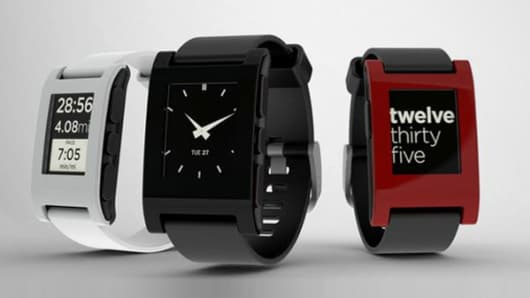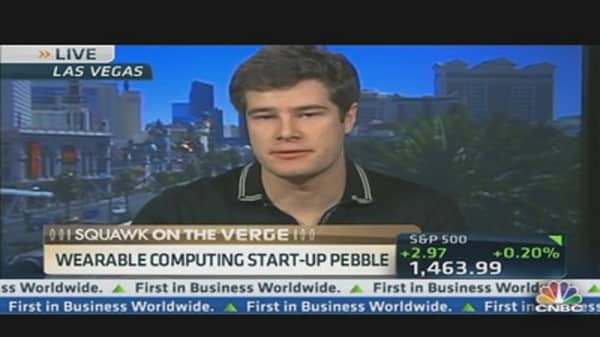And there in lies crowdfunding's rub. Skeptics argue the fast-growing funding platform that connects investors with startups can reward nascent ventures that aren't ready for business. But fans note crowdfunding is a way for capital-starved entrepreneurs to pocket financing, when they're ignored by large investors or traditional lenders.
How Crowdfunding Works
Crowdfunding broadly allows founders of nonprofit, for-profit, artistic and cultural ventures to fund projects by collecting relatively small contributions from a large number of individuals — often strangers — through the Internet. Since its founding in 2009, Kickstarter contributors have invested more than $300 million in more than 31,000 projects.
Pebble is a breakout success story in the crowdfunding space. It has raised $10.3 million in funding through some 68,900 backers since its Kickstarter campaign launched in April last year. "Our goal initially on the crowdfunding platform was to sell 1,000 watches. After 30 days, we had sold 85,000 watches," said Migicovsky, who also co-founded Pebble.
Manufacturing operations were moved overseas from the San Francisco Bay area to make 15,000 smartwatches a week. "The scale of our manufacturing had to go up by quite a bit," he said. Plans to source components through online sources were scrapped, and Pebble had to scour the globe to secure enough components to make the watches.
Despite the uncertainty surrounding crowdfunding, the space is marching forward — even as the Securities and Exchange Commission has delayed rules on the fast-evolving funding platform. The rules were supposed to take effect this month as part of the JOBS Act (Jump-Start Our Business Start-Ups), signed by President Obama last April. (Read more: The Crowdfunding Crowd Is Anxious)




